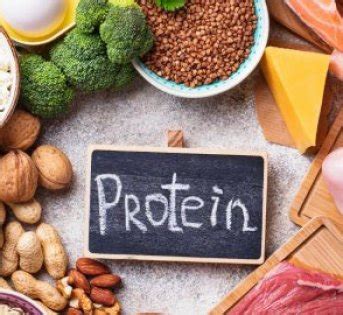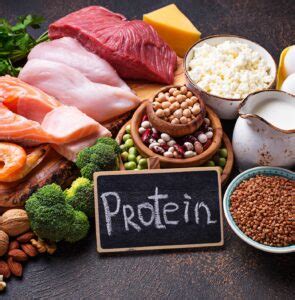The humble egg, often regarded as a kitchen staple, is a nutritional powerhouse packed into a small, versatile package. Whether you enjoy them scrambled, boiled, or as part of your favorite recipe, eggs offer a wide range of health benefits that extend far beyond their delicious taste. In this article, we’ll delve into the nutritional facts of a single egg, uncovering the rich array of proteins, healthy fats, vitamins, and minerals it contains. We’ll also explore how eggs contribute to weight management, heart health, and overall well-being, making them an essential part of a balanced diet. Unlock the potential of one egg and discover why it deserves a place on your plate.
Explore this topic thoroughly with hoteldahab.com
1. Introduction
Eggs have long been a dietary staple, cherished for their versatility and rich flavor. But beyond their culinary appeal, eggs are also a nutritional goldmine, offering an impressive array of health benefits packed into one small, natural package. Whether you’re starting your day with a hearty omelet, enjoying a hard-boiled egg as a snack, or incorporating eggs into your favorite recipes, this humble food has much more to offer than meets the eye.
A single egg is a treasure trove of essential nutrients, including high-quality protein, healthy fats, vitamins, minerals, and antioxidants. These nutrients play a vital role in supporting various bodily functions, from building and repairing tissues to boosting brain health. Additionally, eggs are one of the best dietary sources of choline, a nutrient crucial for brain development and liver function.
In recent years, eggs have also gained recognition for their role in weight management and heart health, with emerging research dispelling earlier misconceptions about their impact on cholesterol levels. As more people look to optimize their diets for better health, the egg stands out as a simple, yet profoundly nutritious, addition to any meal plan. In this article, we will explore the nutritional power of one egg, examining its caloric content, protein profile, healthy fats, and the host of other benefits it brings to the table.

2. Caloric Content
One egg, typically weighing about 50 grams, contains approximately 70 calories. This modest caloric content makes eggs a nutrient-dense option, providing essential nutrients without contributing excessive calories to your diet. The majority of these calories come from protein and fat, with a small amount of carbohydrates.
For those monitoring their caloric intake or aiming to maintain a balanced diet, eggs offer a satisfying way to meet nutritional needs without overindulging. Their low calorie count combined with their high nutrient density makes them an excellent choice for various dietary goals, including weight management and muscle building. Additionally, the caloric content of eggs supports energy levels, making them a valuable addition to meals throughout the day. With their versatility and nutrient profile, eggs provide a healthful way to enhance your diet without compromising on flavor or satisfaction.

3. Protein Profile
Eggs are renowned for their exceptional protein profile, making them a top choice for those looking to boost their protein intake. A single large egg contains approximately 6 grams of high-quality protein, which is essential for muscle repair, immune function, and overall health. This protein is considered complete, as it includes all nine essential amino acids that the body cannot produce on its own and must obtain from food.
The protein in eggs is divided between the egg white and yolk, with the majority found in the white. Egg whites provide about 3.6 grams of protein, while the yolk contributes approximately 2.7 grams. Both parts offer high biological value, meaning they are efficiently utilized by the body.
In addition to their protein content, eggs also contain various bioactive compounds that support muscle function and overall well-being. This makes them an excellent choice for athletes, those engaged in strength training, or anyone seeking to increase their protein intake. The high-quality protein in eggs supports sustained energy levels, muscle growth, and recovery, underscoring their value in a balanced diet.

4. Healthy Fats
Eggs are a valuable source of healthy fats, primarily found in the yolk. A single large egg contains about 5 grams of fat, of which roughly 1.5 grams are saturated fats, and the remainder consists of monounsaturated and polyunsaturated fats. These healthy fats play a crucial role in maintaining overall health.
Monounsaturated fats, which are present in eggs, support heart health by helping to lower levels of LDL cholesterol while boosting HDL cholesterol. Polyunsaturated fats, including omega-3 fatty acids, are essential for brain function and reducing inflammation. Although eggs do contain cholesterol, recent research indicates that dietary cholesterol has a minimal impact on blood cholesterol levels for most people.
Incorporating eggs into a balanced diet provides a source of these beneficial fats, contributing to better cardiovascular health and overall well-being. Their healthy fat content, combined with other nutrients, makes eggs an excellent choice for a nutritious and satisfying diet.
5. Vitamins and Minerals
Eggs are a rich source of essential vitamins and minerals that contribute to overall health. A single large egg provides a notable amount of vitamins including Vitamin A, which supports vision and immune function, and Vitamin D, crucial for bone health and immune system support. Additionally, eggs contain Vitamin B12, vital for red blood cell formation and neurological function, and riboflavin (Vitamin B2), which helps in energy production.
Mineral content in eggs is equally impressive. They are a good source of selenium, an antioxidant that protects cells from damage, and phosphorus, which is essential for maintaining healthy bones and teeth. Eggs also provide small amounts of iron, necessary for oxygen transport in the blood, and zinc, which supports immune function and cell division.
Together, these vitamins and minerals in eggs play vital roles in maintaining various bodily functions, making eggs an excellent addition to a well-rounded diet. Their compreh
6. Choline Content
Eggs are one of the best dietary sources of choline, a crucial nutrient often overlooked in many diets. A single large egg contains about 147 milligrams of choline, which accounts for approximately 27% of the recommended daily intake for adults. Choline is essential for several key functions in the body.
One of its primary roles is in brain health, where it supports cognitive function and memory. Choline is a vital component of phosphatidylcholine, a major phospholipid in cell membranes and a precursor to acetylcholine, a neurotransmitter involved in memory and muscle control. Adequate choline intake is particularly important during pregnancy, as it supports fetal brain development and may reduce the risk of certain neurological disorders.
Additionally, choline aids in liver function by helping to prevent the buildup of fat in the liver, thus reducing the risk of non-alcoholic fatty liver disease. The significant choline content in eggs makes them an excellent choice
7. Antioxidants
Eggs contain a variety of antioxidants that contribute to their impressive health benefits. Two key antioxidants found in eggs are lutein and zeaxanthin, which are particularly beneficial for eye health. Lutein and zeaxanthin are carotenoids that help protect the eyes from harmful light and oxidative stress, potentially reducing the risk of age-related macular degeneration (AMD) and cataracts. These antioxidants accumulate in the retina, where they help filter blue light and maintain healthy vision.
In addition to these carotenoids, eggs also provide a small amount of vitamin E, another potent antioxidant. Vitamin E helps protect cells from oxidative damage by neutralizing free radicals, which can contribute to chronic diseases and aging. This vitamin also supports immune function and skin health.
The presence of these antioxidants in eggs makes them an important food for maintaining overall health and protecting against cellular damage. Including eggs in your diet can help enhance your intake of these beneficial nutrients, contributing to better eye health, reduced oxidative s
8. Impact on Weight Management
Eggs can be a valuable asset in weight management due to their high protein content and ability to promote satiety. The protein in eggs helps increase feelings of fullness, which can reduce overall calorie intake and support weight loss efforts. Studies have shown that incorporating eggs into meals can lead to a greater reduction in body weight and body fat compared to higher carbohydrate breakfasts.
Additionally, the combination of protein and healthy fats in eggs contributes to sustained energy levels, which can help manage hunger throughout the day. This stabilization of blood sugar levels prevents the energy crashes that often lead to unhealthy snacking and overeating.
Eggs are also relatively low in calories, with a large egg containing about 70 calories, making them an efficient choice for those aiming to control calorie intake while still obtaining essential nutrients. Their versatility allows them to be included in various meal plans, whether as part of a balanced breakfast, in salads, or as a nutritious snack.
By incorporating eggs into a balanced diet, you can leverage their satiety-boosting properties and nutrient density to support weight management goals effectively, making them a beneficial component of any weight-conscious eating plan.
9. Heart Health Considerations
Eggs have long been scrutinized for their impact on heart health due to their cholesterol content. However, recent research has clarified that dietary cholesterol from eggs has a minimal effect on blood cholesterol levels for most people. The majority of studies have found that consuming eggs in moderation does not significantly increase the risk of heart disease and may, in fact, be beneficial for heart health.
Eggs contain both saturated and unsaturated fats, with the majority being healthy unsaturated fats. These fats can contribute to improved cholesterol profiles by increasing levels of high-density lipoprotein (HDL), often referred to as “good” cholesterol. Higher HDL levels are associated with a reduced risk of cardiovascular disease.
Additionally, the antioxidants lutein and zeaxanthin in eggs can contribute to heart health by reducing inflammation and oxidative stress, which are linked to cardiovascular disease. Eggs are also a source of choline, which plays a role in reducing homocysteine levels, a marker associated with an increased risk of heart disease.
Overall, when consumed as part of a balanced diet, eggs can be included in heart-healthy eating plans. They offer nutritional benefits without significantly impacting heart disease risk, making them a valuable component of a
10. Conclusion
In conclusion, eggs are a remarkably nutritious food that offers a range of health benefits while fitting easily into various dietary plans. With their impressive protein profile, healthy fats, and essential vitamins and minerals, eggs provide valuable nutrients that support muscle function, brain health, and overall well-being. Their low caloric content and ability to promote satiety make them a useful tool for weight management, helping to control appetite and maintain energy levels.
The presence of antioxidants like lutein and zeaxanthin further enhances their health benefits, contributing to better eye health and reducing oxidative stress. Despite past concerns about dietary cholesterol, recent research shows that eggs have a minimal impact on heart health for most individuals, and their positive effects on cholesterol profiles and inflammation are noteworthy.
Overall, incorporating eggs into a balanced diet can offer significant health advantages, from supporting heart health to aiding in weight management. Their versatility and rich nutrient profile make them a valuable addition to any meal, reinforcing their status as a healthful, nutrient
hoteldahab.com
